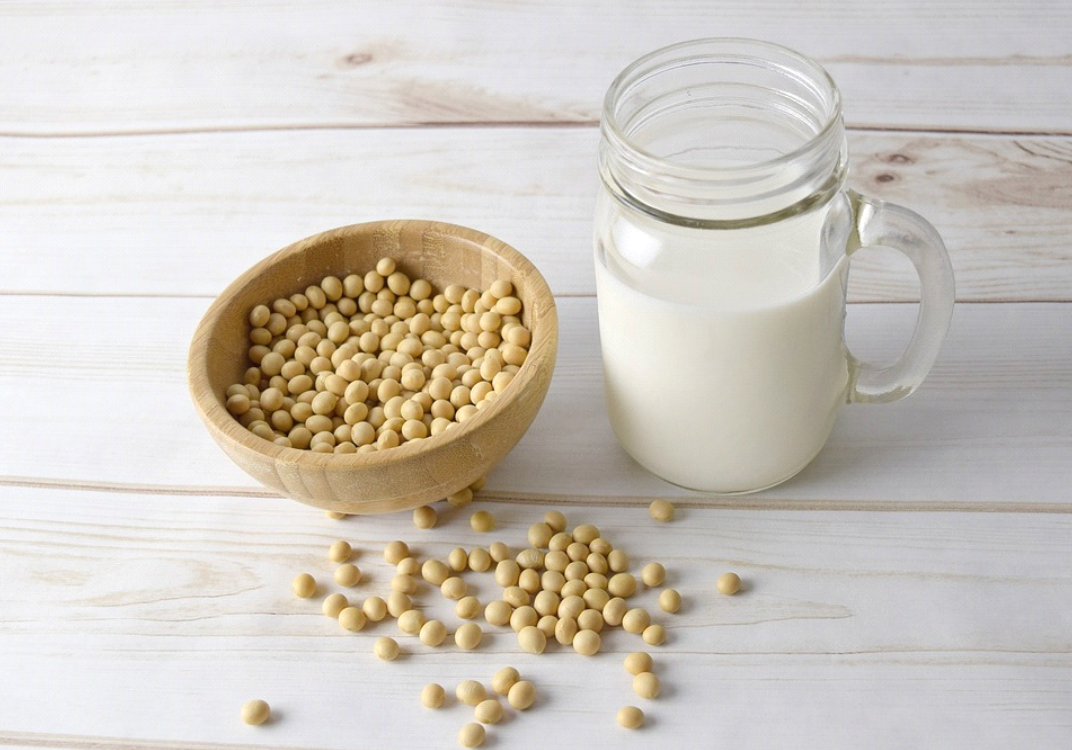
Legumes are a group of plants belonging to the Fabaceae family. Grain legumes include lentils, seeds, peanuts, and soybeans with protein content. Amongst these is the soy variety, rich in many antioxidants like isoflavones. It contains many nutrients essential for your vital functions, ranging from proteins, carbohydrates, and necessary vitamins. Also, the legume is one of the best sources of plant-based proteins for your body. With the goodness of every essential amino acid, soy can be your go-to source of nutrients. Here are the top nutritional benefits and beneficial effects of soy.
Recent Innovations In Soy Industry
Innovations are essential to keep up with the growing demands of the population. Amongst the U.S. Soy latest innovations, the introduction of high-oleic acid soybean oil is a major one. Oleic acid is one of the essential fatty acids that accelerates wound healing, vitamin functions, and recovery processes. Hence, introducing high-oleic acid soy products can facilitate better health and growth.
Besides this, soybean oil rich in omega-3 fatty acids is another milestone in the soy industry. It gives your body the optimal levels of omega-3 fatty acids inducing cardioprotective effects. Also, modified soybean oils can replenish your body’s reservoir of omega-3 fatty acids. Such innovations can uplift soy foods and their quality for the nutritional and physiological effects on the human body.
Nutritional Value Of Soy 
The nutritional profile of soy is quite diverse, with varied levels of nutrients. Soy provides a rich blend of nutrients like proteins, carbohydrates, fats, and essential vitamins. Also, it possesses different amino acids like histidine, lysine, and leucine. Read on to find out the nutrients present in soy and related products.
Protein
Did you know soy products contain the maximum protein level among plant-based sources? Soy products provide over 50-60% of their total dry-weight proteins. Further, it is rich in several amino acids like histidine, lysine, and threonine. Also, the high protein content may aid in the reduction of cholesterol levels and prevent cardiovascular complications.
Carbohydrates
Another nutrient, i.e., carbohydrates, is present in the optimal amount in almost every soy product. It boasts a low glycemic index and benefits those on a carbohydrate-deficient diet plan. Also, it is suitable for diabetics looking for a protein-rich source to add to their diet.
Fats
Soy products contain the ideal amount of fats, especially soybean. Fat accounts for over 18% of soy’s dry weight and benefits your cardiovascular system. Moreover, it contains polyunsaturated and monounsaturated fatty acids essential for your vital functions.
Fiber
Did you know dietary fibers are essential to promote optimal digestion and assimilation? Soy is a rich source of soluble fibers required to increase the growth of intestinal bacteria. Further, the gut flora aids in smooth digestion and ingestion and prevents various kinds of cancerous growths. Hence, soy can be your go-to source of plant-based protein in the long run.
Vitamins
Soy foods contain ample micronutrients in the form of vitamins and minerals. Soybean comes packed with different minerals like molybdenum, copper, and manganese. Besides this, you can find multiple vitamins like vitamin K and B1 in soy-based foods.
Health Benefits Of Soy

Here are the top health benefits of consuming soy foods in the long run.
Can Lower Down The Risk Of Cancer
Are you aware of the cancer-protective effects of soy foods? Several observational studies suggest that soy foods can prevent the development of cancerous growths in your body. Also, it helps prevent oxidative distress through various compounds like isoflavones and lunasin. For maximum benefits, try including soy foods like tofu, tempeh, and soybean in your daily diet.
Can Strengthen Bones
Another benefit of soy-based foods in your diet is its effects on your musculoskeletal growth. Soy-based foods can lower menopausal symptoms and prevent osteoporotic changes amongst them. This is due to the presence of isoflavones in the foodstuff, which, in turn, regulate the calcium absorption in your body. Also, it can prevent frequent bone anomalies, including fractures and bone aches, in the long run.
Can Curb Menopausal Symptoms
Menopause can be a daunting time to deal with due to multiple associated symptoms. It can lead to hot flashes, mood swings, and excessive perspiration. With the soy-based diet, you can control menopausal symptoms. Soy contains isoflavones that have a positive effect on the menopausal state. Also, it releases certain phytoestrogens that balance out the estrogen deficiency.
May Lower Cholesterol Levels
Another health benefit of soy revolves around its ability to reduce the cholesterol levels in your body. Soy products can control the raised levels of cholesterol and prevent cardiovascular complications associated with it. Also, it has an impact on low-density lipoproteins and might reduce their levels.
Final Verdict
The human body and its development depend upon the nutrition you adapt to. If you’re looking for a wholesome plant-based source of protein, then you may consider soy foods. It provides the perfect blend of proteins and other nutrients beneficial for your body. Amongst the nutritional benefits, soy foods offer vitamins and minerals like vitamin K and B1.
Also, it has several health benefits, including better digestion, relief from menopausal symptoms, and bone health. With the antioxidant effects, soy foods may prevent oxidative distress and induce anti-tumor effects. Such benefits render soy foods an ideal source of protein and other nutrients essential for your body. However, some innovations are still ongoing to improve soy’s quality and utility.

